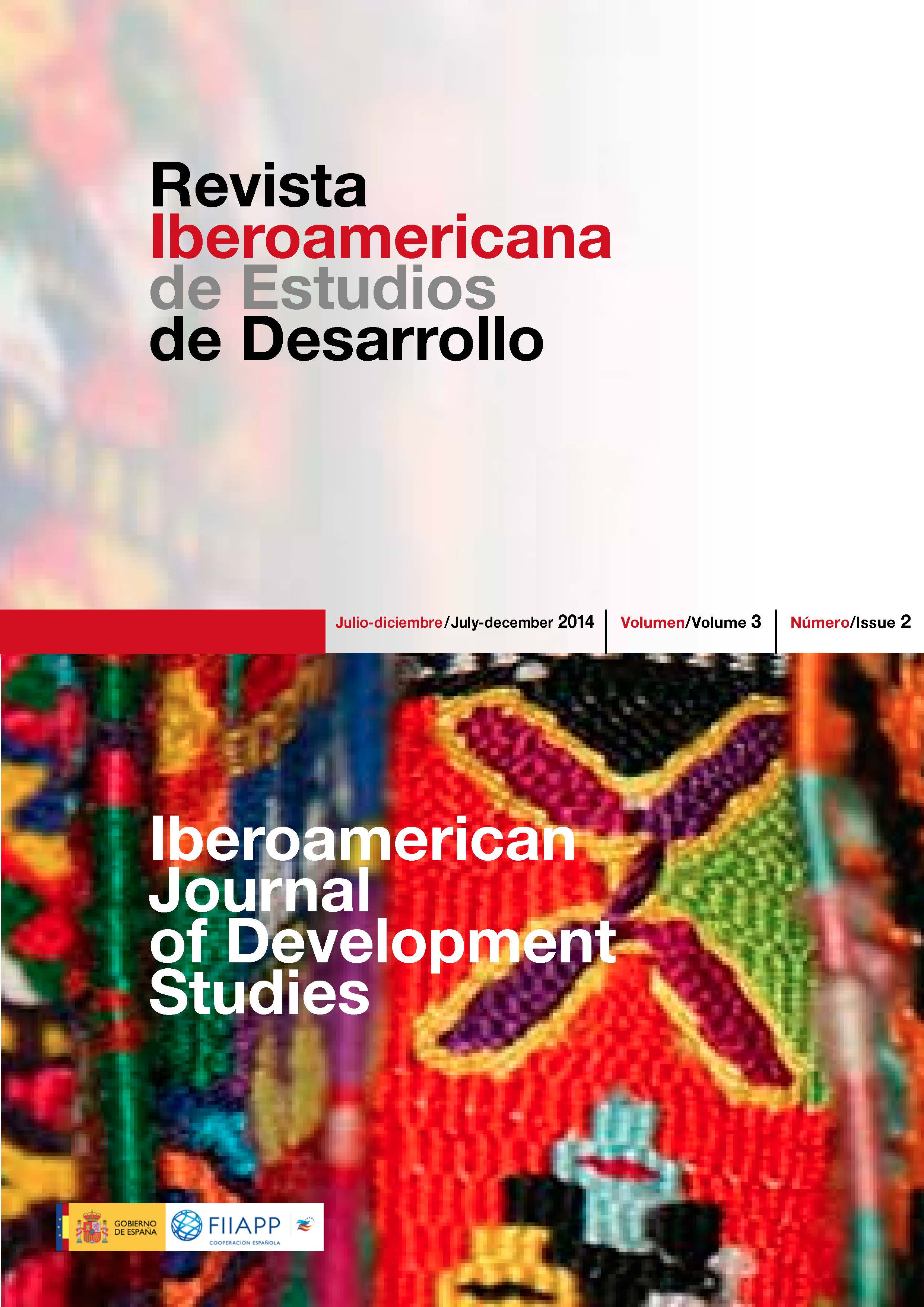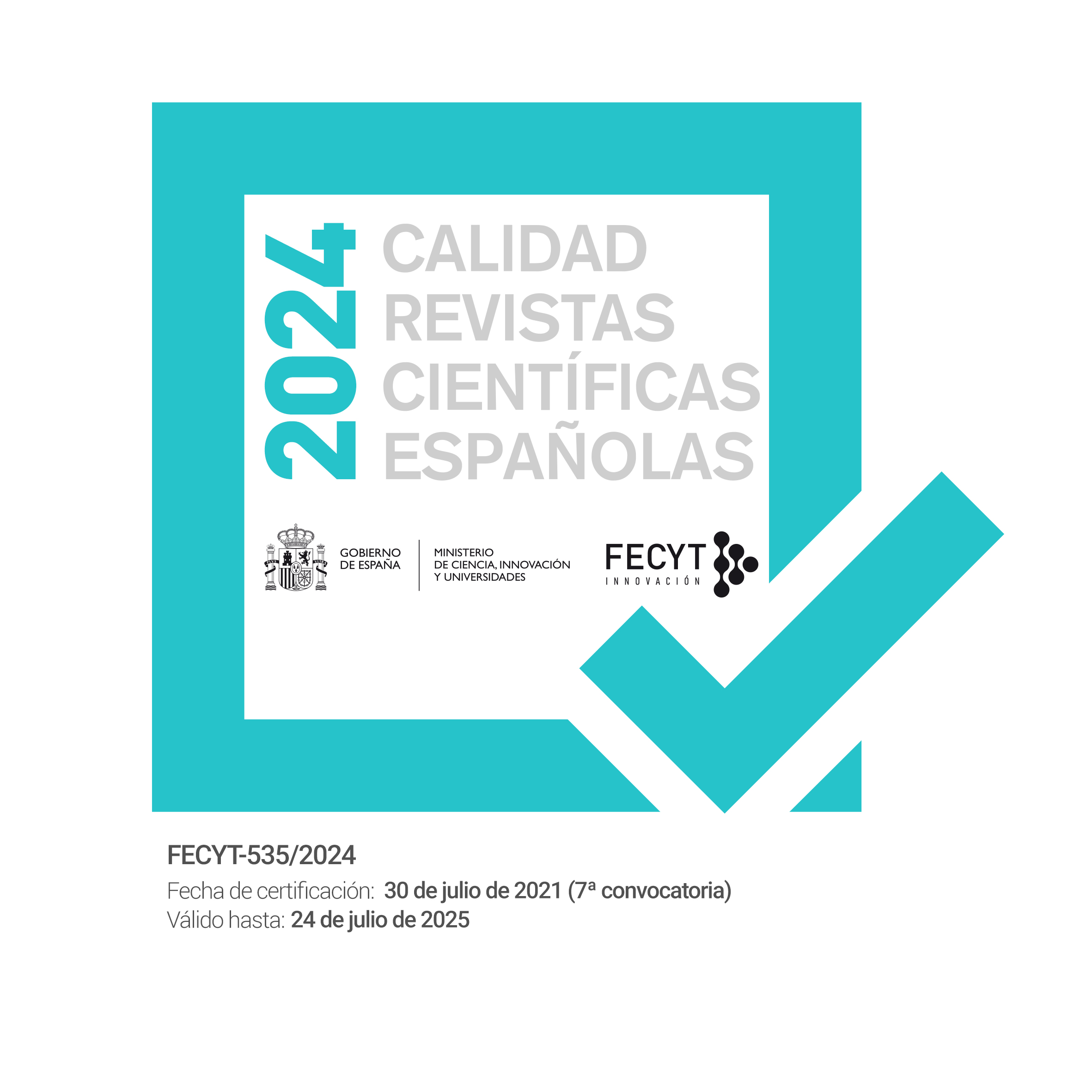Rights of nature and the indigenous peoples in Bolivia and Ecuador: A Straitjacket for Progressive Development Politics?
DOI:
https://doi.org/10.26754/ojs_ried/ijds.137Keywords:
Bolivia, Ecuador, Development Politics, Environmentalism, Rights of Nature and the Indigenous Peoples, Sumak KawsayAbstract
Is it possible to justify resource extractivism to provide progressive welfare politics and still respect the constitutional rights of nature? The Indigenous concept of Sumak Kawsay on human beings living in harmony with each other and the environment is the fundamental framing of the new constitutions of Ecuador and Bolivia. These constitutional reforms embrace strengthened proper rights of nature and similarly of ethnic rights. However, the same constitutions grant the State the right to exploit and commercialize natural resources and extractivism has increased. This study revises the tensions between welfare politics, extractivism and the rights of nature and the Indigenous peoples in the new constitutional settings of Bolivia and, particularly, Ecuador. The article argues that Sumak Kawsay challenges dominating understandings of the concepts of welfare, common good and development, and likewise that a pragmatic approach is applied by national governments towards the constitutional rights of nature amidst other human values.
Downloads
References
ACOSTA A (2009). La maldición de la abundancia. Quito, Abya-Yala
ACOSTA A (2012). Buen vivir y Sumak kawsay. Una oportunidad para imaginar otros mundos. Quito, Abya-Yala
ACOSTA A, et al . (2013). El correísmo al desnudo, Quito, Montecristi Vive
ALBÓ X (2013). Réquiem por el Parque Nacional Yasuní. Resource document. ALAI, América Latina en Movimiento; http://www.alainet.org/active/66580
ALBRO R (2010). Confounding Cultural Citizenship and Constitutional Reform in Bolivia. Latin American Perspectives 37(3)
ARSEL M, ÁVILA Á N (2012). »Stating» Nature’s Role in Ecuadorian Development. Civil Society and the Yasuní-ITT Initiative. Journal of Developing Societies 28(2)
BEBBINGTON A, Humphre ys B D (2010). An Andean Avatar: Post-neoliberal and neoliberal strategies for promoting extractive industries. BWPI Working Paper 117, University of Manchester
CEPAL (2013). Panorama social de América Latina 2013. Comisión Económica para América Latina y el Caribe/CEPAL. Available at: http://www.eclac.cl/publicaciones/xml/9/51769/PanoramaSocial2013.pdf
CHUJÍ GUALINGA M (2014). Sumak Kawsay versus desarrollo. In: Hidalgo Capitán A L, Guillén García A, Deleg Guazha N (eds.). Sumak Kawsay Yuyay. Antología del pensamiento indigenista ecuatoriano sobre Sumak Kawsay. Centro de Investigación en Migraciones/CIM, Universidad de Huelva y Programa Interdisciplinario de Población y Desarrollo Local Sustentable/PYDLOS, Universidad de Cuenca.
CORREA DELGADO R (2012). Lanzamiento de la decimoprimera ronda petrolera. Presidential discourse, Quito, 28 dic. 2012; http://www.presidencia.gob.ec/wp-content/uploads/downloads/2013/02/2012-11-28-DECIMOPRIMERA-RONDA-PETROLERA.pdf
CORREA DELGADO R (2013). Cadena Nacional sobre Iniciativa Yasuní ITT. Televised speech; https://www.youtube.com/watch?v=IFc1topfPqM
DÁVALOS P (2013). No podemos ser mendigos sentados en un saco de oro. Las falacias del discurso extractivista. In: Acosta A et al. El correísmo al desnudo. Quito, Montecristi Vive
ECKERSLEY R (2002). Environmental Pragmatism, Ecocentrism and Deliberative Democracy: Between Problem-solving and Fundamental Critique (Manuscript). In: Minteer B A, Pepperman Taylor B (eds.), Democracy and the Claims of Nature: Critical Perspectives for a New Century. Maryland, Rowman et Littlefield Publishers
EL COMERCIO (Ecuador) (2013). Grupos amazónicos apoyan la explotación, 14 September, 2013; http://www.elcomercio.com/politica/amazonicos-apoyan-explotacion-Yasuni-Ecuador_0_992900789.html
EL TELÉGRAFO (2014). Yasunidos no alcanza firmas para consulta popular sobre Yasuní.7 May 2014. Available at: http://www.telegrafo.com.ec/politica/item/yasunidos-noalcanza-firmas-para-consulta-popular-sobre-yasuni.html
EL UNIVERSO (2014). Con 727 947 firmas, colectivo YASunidos espera concretar su consulta popular. 11 April 2014. Available at: http://www.eluniverso.com/noticias/2014/04/11/nota/2675491/727947-firmas-colectivo-espera-concretar-su-consulta
ESTADO PLURINACIONAL DE BOLIVIA (2009). Constitución política del Estado. La Paz, Estado Plurinacional de Bolivia
ESTADO PLURINACIONAL DE BOLIVIA (2012). Ley marco de la madre tierra y desarrollo integral para vivir bien. La Paz, Asamblea Legislativa del Estado Plurinacional de Bolivia
FUNDACIÓN TIERRA (2012). Marcha indígena por el TIPNIS. La lucha en defensa de los territorios. La Paz, Comunicaciones El País, S.A.
GARCÍA LINERA Á (2012). Geopolítica de la Amazonía. Poder hacendal-patrimonial y acumulación capitalista. La Paz, Vicepresidencia del Estado Plurinacional, Presidencia de la Asamblea Legislativa Plurinacional
GARCÍA LINERA Á (2013). Los desafíos del proceso de cambio en Bolivia. Conferencia en el Centro Cultural de Cooperación Floreal Gorini, Buenos Aires, 27/06/13. Available at:
http://www.centrocultural.coop/videos/la-patria-grande-alvaro-garcia-linera--1-.html
GUDYNAS E (2009a). El mandato ecológico. Derechos de la Naturaleza y políticas ambientales en la nueva Constitución. Quito, Abya Yala
GUDYNAS E (2009b). Diez tesis urgentes sobre el nuevo extractivismo. Contextos y demandas bajo el progresismo sudamericano actual. In: VV AA (ed.), Extractivismo, política y sociedad, ed. VV AA. Quito, CAAP (Centro Andino de Acción Popular) y CLAES (Centro Latino Americano de Ecología Social)
GUDYNAS E (2011). Buen vivir: Today’s tomorrow. Development 54(4)
HIDALGO-CAPITÁN A L, CUBILLO-GUEVARA A P (2014). Seis debates abiertos sobre el Sumak Kawsay. Íconos. Revista de Ciencias Sociales48. Quito, FLACSO
HIDALGO CAPITÁN A L, GUILLÉN GARCÍA A, DELEG GUAZHA N (2014) (eds.). Sumak Kawsay Yuyay. Antología del pensamiento indigenista ecuatoriano sobre Sumak Kawsay. Centro de Investigación en Migraciones/CIM, Universidad de Huelva y Programa Interdisciplinario de Población y Desarrollo Local Sustentable/PYDLOS, Universidad de Cuenca. Available at: http://www.uhu.es/cim/documents/agenda/libro_sumak.pdf
KENNEMORE A, WEEKS G (2011). Twenty-First Century Socialism? The Elusive Search for a Post-Neoliberal Development Model in Bolivia and Ecuador. Bulletin of Latin American Research 30(3)
LALANDER R, OSPINA PERALTA P (2012). Movimiento indígena y revolución ciudadana en Ecuador. Cuestiones políticas 28(48). Universidad del Zulia, Maracaibo
LATORRE TOMÁS S (2012). El movimiento ecologista popular anti-minero en el Ecuador. Ecuador Debate 87, CAAP (Centro Andino de Acción Popular), Quito
MCNEISH J A (2013). Extraction, Protest and Indigeneity in Bolivia: The TIPNIS Effect. Latin American and Caribbean Ethnic Studies 8(2)
MORALES AYMA E (2011). The Earth does not belong to us, we belong to the Earth. La Paz, Ministry of Foreign Affairs, Plurinational State of Bolivia
MORALES AYMA E (2014a). Presidente Evo Morales. Informe de la gestión 2013 al pueblo boliviano, 22 January 2014, La Paz, Asamblea Legislativa Plurinacional.
MORALES AYMA E (2014b). Inauguración de la Planta Piloto de Baterías de Ión Litio. Presidential Discourse, Palca, Potosí, 17 February 2014. Available at: http://www.comunicacion.gob.bo/sites/default/files/media/discursos/Discurso%20del%20presidente%20Evo%20Morales%20en%20la%20Inauguraci%C3%B3n%20de%20la%20Planta%20Piloto%20de%20Bater%C3%ADas%20de%20I%C3%B3n%20Litio%2017.02.2014.pdf
NAVARETTE R (2011). Seeds of «Good Living» in Ecuador? New Left Project. Available at: http://www.newleftproject.org/index.php/site/article_comments/goo_living_in_rafael_correas_ecuador
PÁGINA SIETE (2014). El vicepresidente descarta carretera por el TIPNIS. 04/01/2014. Available at: http://www.paginasiete.bo/nacional/2014/1/4/vicepresidentedescarta-carretera-tipnis-10441.html
PARKER K A (1996). Pragmatism and Environmental Thought. In: Light A & Katz E (eds.). Environmental Pragmatism. London and y New York, Routledge
PRADA ALCOREZA R (2014). Despojamiento y desposesión extractivista imperial. Las condiciones jurídicas y políticas constitucionales sobre recursos naturales y minería. Rebelión, 14-04-2014. Available at: http://www.rebelion.org/noticia.php?id=183337&titular=despojamiento-y-desposesi%F3n-extractivista-imperial
RAMÍREZ GALLEGOS R (2012). Izquierda y «buen capitalismo». Un aporte crítico desde América Latina. Nueva Sociedad 237:32-48
REPÚBLICA DEL ECUADOR (2008). Constitución política del Ecuador (2008).18 Montecristi, Asamblea Nacional Constituyente
SENPLADES (2009). National Plan for Good Living 2009-2013: Building a Plurinational and Intercultural State (summarized version). Quito, Republic of Ecuador, National Planning and Development Secretary/SENPLADES
SENPLADES/Secretar ía Nacional de Planificaci ón y Desarrollo (2013). Plan nacional para el buen vivir 2013-2017. Quito, SENPLADES. http://www.buenvivir.gob.ec
UNFCCC (United Nations Framework Convention on Climate Change) (2011). Ad Hoc Working Group on Long-term Cooperative Action under the Convention. UNFCCC. Available at: http://unfccc.int/resource/docs/2011/awglca14/eng/misc02.pdf
WANDERLEY F (2011). The Economy of the Extractive Industries. Poverty and Social Equality. Harvard Review of Latin America. Fall 2011. Available at: http://revista.drclas.harvard.edu/publications/revistaonline/fall-2011/economy-extractive-industries
WHITTEMORE M E (2011). The Problem of Enforcing Nature’s Rights under Ecuador’s Constitution: Why the 2008 Environmental Amendments have No Bite. Pacific Rim Law and Policy Journal 20(3)
Downloads
Published
How to Cite
Issue
Section
License
Copyright (c) 2014 Rickard Lalander

This work is licensed under a Creative Commons Attribution-NonCommercial-NoDerivatives 4.0 International License.








